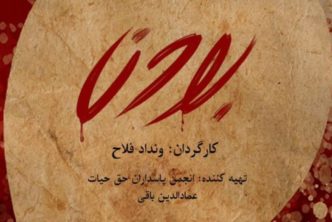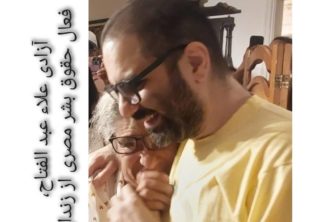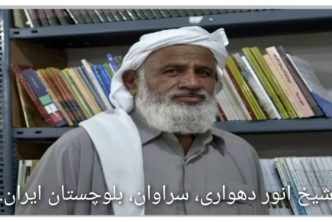Outlets Reported on Trial That Implicated Official in Death of Detained Photographer
By Karl Vick
Washington Post Foreign Service
Tuesday, July 27, 2004; Page A18
ISTANBUL, July 26 — An Iranian prosecutor has ordered the closures of two newspapers that reported last week on a trial involving a case in which he is alleged to have been involved.
The prosecutor, Said Mortazavi, shut down Jomhouriat, which had published for only 12 days, and Vaghayeh Ettefaghieh over their coverage of the trial of an intelligence agent accused of beating and killing an Iranian Canadian photographer at a prison in the Iranian capital, Tehran, last year. Mortazavi, who supervised interrogations at the prison, has been accused by Canadian authorities of having a role in the killing. The only person charged, however, was the agent, Mohammad Reza Aghdam Ahmadi.
On Saturday, a Tehran court acquitted Ahmadi, and Iran’s hard-line judicial branch subsequently declared that the case would never be solved.
The shuttering of the newspapers served as an example to other Iranian news media, sources in Tehran said. According to the sources, who said they were warned by Mortazavi’s office not to give interviews to the foreign press but who passed information through intermediaries, the papers may be able to reopen in August.
“It shows how Mortazavi has done everything he could to hide and cover up the evidence,” said Stephan Hachemi, son of the slain photojournalist, Zahra Kazemi. “There is no hope. They have proved that Iran has no intention whatsoever of bringing justice to the case of Zahra Kazemi.”
When Kazemi died in detention after a blow to the head, Mortazavi ordered Iranian officials to announce that she died of natural causes, according to two outside investigations. She was later found to have died of a brain hemorrhage caused by a fractured skull.
Nobel Peace Prize laureate Shirin Ebadi, an attorney who represents Kazemi’s family, threatened to take the case to international courts.
Iranian reformers embraced the case of Kazemi, an Iranian-born Canadian citizen who was widely seen as a surrogate for Iranian nationals who disappear into a judicial system that answers only to the theocracy’s most senior cleric. But outcry over this case spread beyond the country’s borders.
Canada recalled its ambassador after he was denied a promised seat at the trial. The envoy had also been recalled last summer after Kazemi’s body was buried in Iran without an opportunity for an independent autopsy abroad.
“This trial has done nothing to answer the real questions about how Zahra Kazemi died or to bring the perpetrators of her murder to justice,” Canadian Foreign Minister Pierre Pettigrew declared in a statement.
Reporters Without Borders, an advocacy group based in Paris, denounced the trial as “a masquerade of justice orchestrated by the Iranian authorities” and called for the European Union to impose sanctions. The group also protested the shuttering of the two newspapers.
In a symbolic gesture, about 300 journalists bound their hands Monday to protest mounting restrictions on free expression. Ebadi attended the meeting of the Journalists’ Professional Association.
For hard-liners in Iran, the judiciary has long served as both a stronghold and a sanctuary, where appointed conservatives have been able to thwart the efforts of elected reformers. Mortazavi has been its most notorious operative, closing more than 100 newspapers that questioned Iran’s authoritarian rule.
But after 25 years as one of the world’s most isolated states, Iran has also made clear an appetite to cultivate economic and diplomatic ties abroad. The decision to open its shadowy nuclear program to international inspectors was linked to promises of trade with Europe.
External pressure forced Iran’s judiciary to proceed with the trial, which could only embarrass hard-liners, according to foreign diplomats based in Iran. After Ahmadi was acquitted, the state offered to pay “blood money” to Kazemi’s family, “as Islamic law stipulates . . . for a Muslim within state responsibility when perpetrators of a crime are not identified,” the judiciary said in a statement published by Iran’s official news agency.
Hachemi, the victim’s son, scoffed at the offer and called for Canada to break diplomatic relations with Tehran, as Washington did in 1979 after the takeover of the U.S. Embassy there. “Since we don’t have a dialogue with Iran, what’s the use of having an ambassador?” he said.
Meanwhile, a spokesman for the reformist faction of the government on Monday repeated an offer to the judiciary for “a full and transparent investigation.”
A diplomat based in Tehran said that such a probe would be highly unlikely after Mortazavi and other hard-liners thwarted two earlier investigations but added that the case “is not going to die an easy death.”
© 2004 The Washington Post Company





Good blog